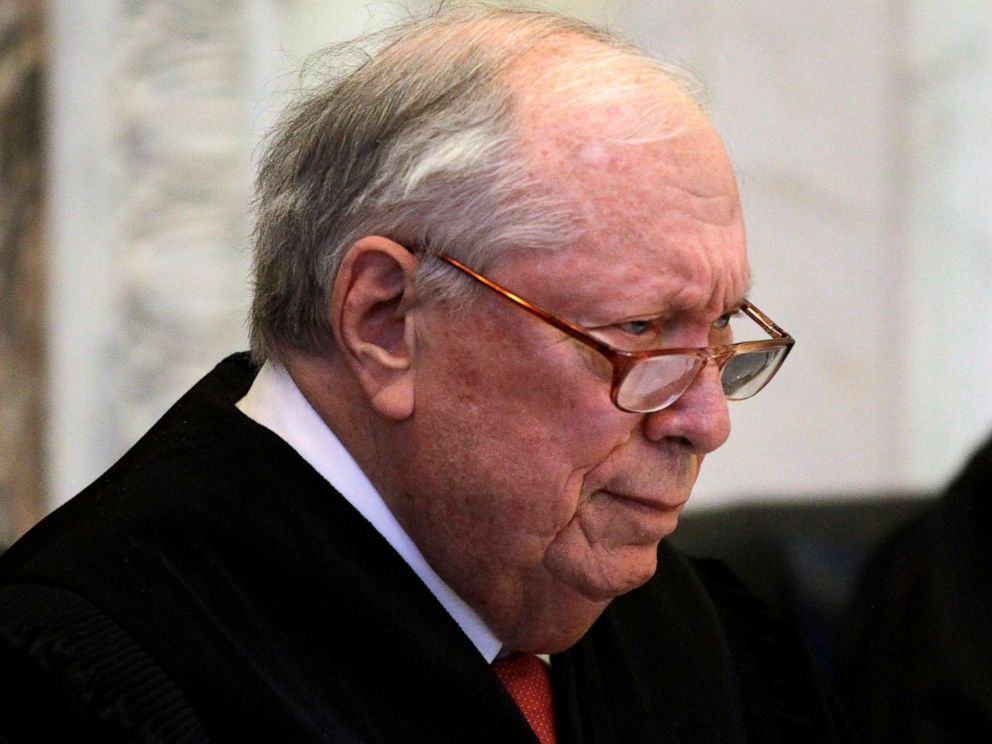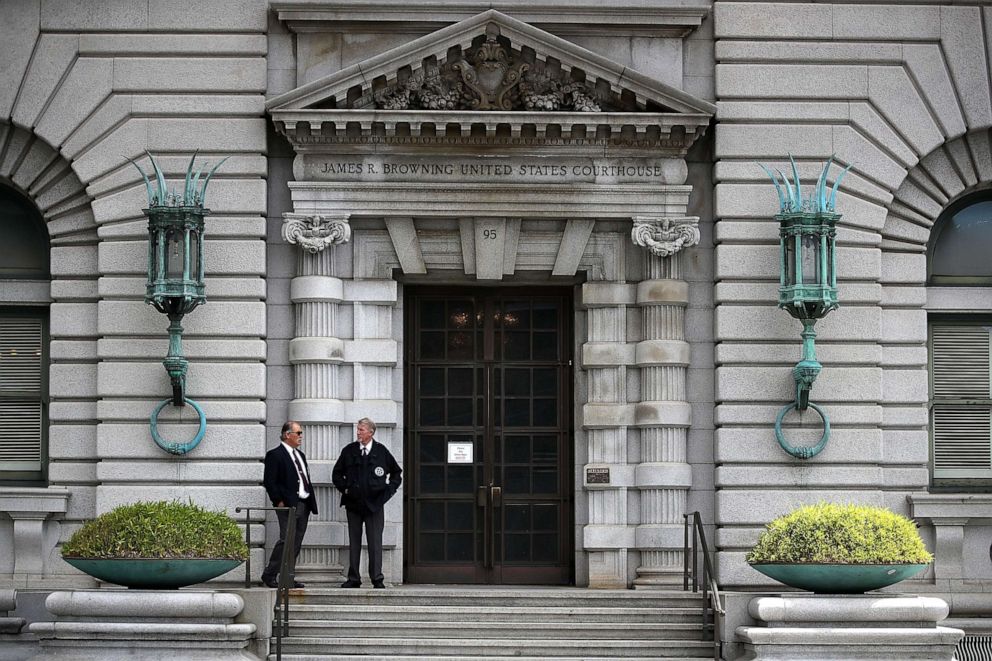Judiciary employees want 'sustained commitment' against workplace sexual harassment
A former clerk said she feared retaliation for reporting misconduct by a judge.
Less than a year after the federal judiciary revised its policies for judges and judicial employees to report sexual harassment in the workplace, former employees told a House Judiciary subcommittee that the changes aren't enough.
Olivia Warren, a graduate of Harvard Law School worked as a clerk for the late Judge Stephen Reinhardt from May 2017 until he passed away in March 2018 at age 87. During her nearly year-long clerkship, she said the judge "routinely and frequently made disparaging statements" about her physical appearance, her views on women’s rights and her relationship with her husband.

"Often, these remarks included expressing surprise that I even had a husband because I was not a woman who any man would be attracted to," she said Thursday during a hearing before the House subcommittee on courts, intellectual property and the internet.
Warren said she feared retaliation for revealing Reinhardt’s behavior, so she tried inquiring about how she could report him without her name attached.
After seeking advice on confidentiality, she said she came up with nothing.
"My primary concern was gaining assurance that my information would be treated confidentially, but no one could give me a straight answer as to whether or under what circumstances it would remain confidential," she said.
In a statement to ABC News, a judiciary spokesperson said no employee should "suffer the kind of harassment" described by Warren in her testimony.
"We are deeply concerned about the new information we have learned through Ms. Warren’s statement to the House Judiciary Subcommittee this morning, and we take her statement very seriously," the spokesperson said. "We are committed to addressing this new information and continuing to refine our processes and procedures for protecting our employees and addressing misconduct."
This was not the first time concerns like Warren’s have been raised before lawmakers. In June 2018, Jaime Santos, a Washington-area lawyer, testified about the stories she heard after talking to various female clerks for other judges in prestigious positions.
In a letter to the subcommittee’s Chairman Rep. Henry Johnson of Georgia and Ranking Member Rep. Martha Roby of Alabama, ahead of Thursday’s hearing, Santos reiterated her call for "sustained commitment" to change the culture.
"It is my view that it remains just as important today as it was almost two years ago when I testified before the Senate Judiciary Committee that these issues continue to be a priority for state and federal judiciaries nationwide," she wrote in the letter.

Santos said she was initially motivated to seek out victims of sexual harassment at a judicial level after The Washington Post reported in December 2017 that six former clerks and externs were all subjected to inappropriate sexual conduct or comments from former Ninth Circuit Judge Alex Kozinski.
Kozinski, 69, abruptly retired after an investigation was launched and more women came forward with allegations against him -- and the investigation was dropped.
Deeva Shah, a colleague of Santos’ at Law Clerks for Workplace Accountability, an organization of current and recent law clerks fighting harassment, testified on Thursday that judges should not be able to use retirement or resignation as their way out of an investigation.
"I recommend amendments to empower the judiciary to require investigations and to take action regardless of resignation," Shah said.
She said judges and courts should clarify how they will determine whether retaliation has occurred for those who speak out, and what remedies are available to a victim of retaliation. She also recommended they conduct a review of the barriers that prevented clerks from coming forward and create a nationwide reporting system, rather than depending on individual and district courts to handle instances of misconduct.

Johnson said the subcommittee invited James Duff, the director of the administrative office of the U.S. Courts, and other judiciary staff members to attend the hearing, but was "disappointed" when none showed up.
"Their direct and continued engagement is critical for further progress on this issue," he said. "And it is my hope that they will send a representative to appear before the subcommittee in the near future."
In a letter to Johnson, Duff said it would have been "inappropriate" for himself or other judiciary witnesses to participate while an investigation of sexual harassment by Judge Carlos Murguia, a federal judge in Kansas, is currently underway.
"I request that you first allow our process of reviewing the Murguia matter to run its course," he said. "After which time, I would be pleased to attend a hearing."
Reinhardt's wife Ramona Ripston, before she too passed away in 2018 at age 91, was a top official at the American Civil Liberties Union.
ABC News has reached out to the ACLU for comment.



